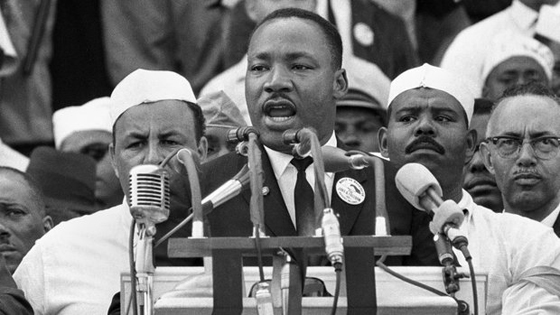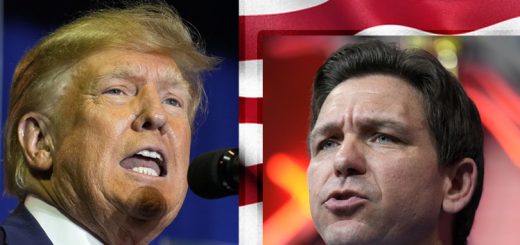A well-spoken dream.
Listen to the broadcast of You Tell Me on KTBB AM 600, Friday, August 30, 2013.
MP3 Download/Mobile Listen
This week (Weds, Aug 28) marked the 50th anniversary of one of the most important speeches in American history. On a sweltering summer afternoon Dr. Martin Luther King, Jr. stood on the steps of the Lincoln Memorial in front of more than a quarter million people and delivered an address that would, more than any other single event, energize the struggle for civil rights for black Americans.
The speech ran to 1,667 words and for the first two thirds of it, King had but a very tenuous hold on his audience. He was not really connecting. But word number 1,070 was the word, “dream,” and beginning in that moment, King found his footing and established a rhythm and from there he changed history. The refrain, “I have a dream,” now serves as the title of the speech.
“I Have a Dream,” laid down a marker in the civil rights movement from which the third subsequent generation of Americans now benefits. If you had to point to a single moment in which it began to become possible for a black man to be elected President of the United States — a country that at one time wouldn’t let black people stay in the same hotels as white people — you would have to say it was in the afternoon of August 28, 1963.
I would wager that more school kids today can quote lines from “I Have a Dream,” than can quote from the Gettysburg Address. Practically everyone has heard the eloquent enumerations of Dr. King’s aspirations for equality, each illustration of which punctuated by the phrase, “I have a dream today.”
But while I admire the technique and appreciate the historic significance of that refrain, I am much more taken with the text earlier in the speech. Grab it, read it and you will discover a literary gem.
It has become lost on many Americans – black and white – that for all of Martin Luther King’s gifts, perhaps his greatest was his command of the King’s English. Martin Luther King revealed in very nearly every word he uttered that he was first and foremost an educated man. His speeches demonstrated an advanced understanding of history and Western culture and were a delight to listen to both for the skill of the delivery and the impeccability of the writing.
Today, an appalling percentage of the grandchildren of the civil rights movement don’t appreciate that fact and instead choose to express themselves in profanity-laced “ghetto English.” Too many of Dr. King’s spiritual heirs cannot compose a grammatically-correct English sentence. For too many, Dr. King’s comparison of the Constitution and the Declaration of Independence to a promissory note to which all Americans fall heir is a metaphor that does not connect because of the fact that they don’t know what a promissory note is.
Too many of the grandchildren of the civil rights movement have been taught to venerate Martin Luther King without being concurrently taught to venerate the education that made him who he was.
One can imagine that if he were to come back today, Dr. King would be shocked to hear how today’s black athletes and entertainers express themselves.
I am certain that he would be outraged that today’s civil rights leaders stand mostly silent as half or more black high school kids in many cities drop out of school.
He would be dismayed by the emergence of a new, much more sinister form of segregation. Today, much more than skin color, it’s lack of education that segregates and forecloses opportunity for young black men and women.
Fifty years after Dr. King’s recitation of his dreams, that is simply unacceptable.
It is well and good to remember and appreciate “I Have a Dream.” But it doesn’t do for so many to willfully overlook the fact that the speech would never have happened but for the beliefs, ruminations and aspirations of a well-educated man.









The poor black people have been used again & again.
First was slavery.
Abolition freed them from slavery.
Then the war on poverty was created .
Next race profiteers found out that promises
could manipulate this proud people to jump like a trained team.
Now blacks haven’t got any dream….only one fed to them by
race profiteers.
No one appears to try to fix actual problems because they are afraid to get called ‘racists’.
Poor black kids highest on the murder list by BLACKS.
Now their highest dream is to be killed before age 21 .
They kill because they are ‘bored’.
Blacks don’t want to be like “Whites”.
Blacks don’t strive for high marks because that’s too White.
MLK said,” my dream is to have people judged by their character
not the color of their skin”.
Let us well remember MLK’s dream for the betterment of our poor blacks.
Let us concentrate on CHARACTER.